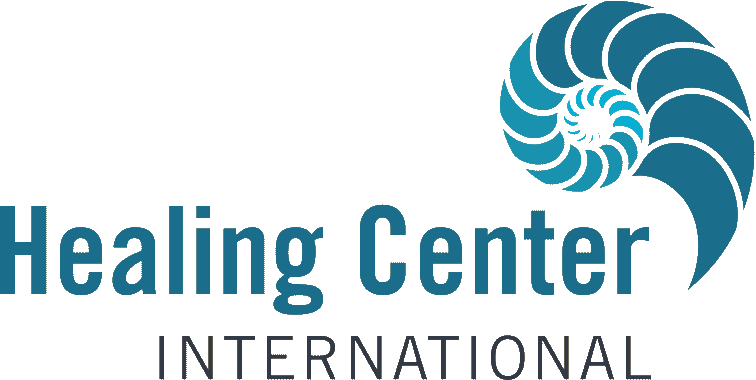Human Maturity Stages - Parent Maturity
/Understanding Developmental Maturity
The Parent Stage
From the Life Model with additions by Betsy Stalcup (text) and Jeannie Herbert (tables), February 2021
We all grow and mature in stages starting from a tiny embryo in our mother’s womb. Our bodies grow automatically, but our hearts and minds do not. Our hearts and minds need certain conditions to fully develop. Most of us can picture what healthy physical development should look like as humans grow from infants to elder, but many of us do not know what it looks like to develop emotionally and mentally. When we do not have the maturity we should have for our age, those areas of lack are then deficits. Most maturity deficits come from trauma. Both A Trauma (the absences of necessary good things) and B Trauma (bad things) arrest development in one or more areas.
PARENT (from birth of first child to when the youngest child becomes an adult)
The Goal of the Parent stage is to learn to give sacrificially with joy, without expecting to receive in return.
Anyone who has ever been a parent knows that this new stage requires all we learned in the earlier stages—infant, child, adult—and more. Welcome to the parent stage! Only a person who has mastered the first three stages will have the capacity to give sacrificially to an infant. A father or mother must have received life to be able to give life to their children. Infants have no idea that their parents have limits and will demand all they have. In this stage parents are stretched to give more than they can imagine by the needs of their new baby. They have to care for them, comfort them, when they are sick or in distress.
No doubt, your infant will win your heart through their adorable antics and sweet smiles. But no matter how adorable, your child will never be able to repay you for all you have given them. Nor should they! For if you learn all God intends for you in this stage, you will be transformed in ways that will make the world around you a better place.
Someone once said that “You know that you are a father (or mother) when your child keeps you up all night, screaming in your ear, spitting up on your shirt, and then shows no appreciation for your efforts.” Yet, if you are a healthy parent, you will not be angry with your little one for depriving you of much needed sleep. You don’t expect your child to comfort you the next time you have a toothache. Instead you give more than you thought possible without demanding anything in return. It is not easy, but it is deeply rewarding.
As your children matures, you rejoice as they learn to regulate their emotions and times of upset decrease. Trust builds. Your children masters the infant skills, learning to take care of his/herself. Infants and young children have more needs than one parent can manage, which means parents need to use their adult skills to bargain with their mate to share the load. Mom and Dad share a home where they can protect, serve, and enjoy one another. Together they provide the resources and unselfish giving their children need to mature.
Dad and Mom also demonstrate God’s grace through their unselfish giving. Their child learns that they have value and are treasured and special without having to earn it. The opportunity to love as God loves, to display his heart and character, is a great honor. It takes most of us many years to master the art of unselfish giving. Often, we do better with subsequent children than we did with the first.
You do not need to bear a child to reach parent maturity. By giving sacrificially to your own parents, a mentally or emotionally handicapped sibling, or friend you can also grow in this skill. The key is sacrificial, joyful giving to someone who has no capacity to return your gift.
THE PARENT STAGE – the Self-Sacrificial Years
(from the birth of the first child, until all of their children have adult maturity)
Primary Task: Responsibility for someone smaller, weaker or younger than yourself, requiring self-sacrifice.
If tasks are not completed: Begrudging the sacrifice required; results in distant or conflicted family relationships
Parent Needs
To be fruitful / give life in relationships
An encouraging partner
Peer review from other fathers and mothers
A secure and orderly environment for raising children
Guidance from elders
Parent Tasks
Giving without needing to receive in return
Willingness to sacrifice his or herself for others
Delaying gratification of immediate desires
Building a home
Making choices for long term wellness
Protecting his/her family
Serving his/her family
Enjoying his/her family
Helping own children reach maturity
Synchronizing with needs of children, spouse, family, work and church
See own thru ‘eyes of heaven’
Parent Stage Indicators: The Self-Sacrificial Years
(Until all children have reached adult maturity)
Key: 1 = God has begun the work… 10 = By God’s grace, I’ve got this!
The Parent Stage: Responsibility for someone smaller, weaker, or younger than myself, requiring self-sacrifice and Where I Am
I can give without needing to receive in return.
1 2 3 4 5 6 7 8 9 10
I make sacrifices in order to care for my children and family.
1 2 3 4 5 6 7 8 9 10
I can delay gratification of my immediate desires.
1 2 3 4 5 6 7 8 9 10
I am building a home.
1 2 3 4 5 6 7 8 9 10
I make choices for my long-term wellness (physically, intellectually, emotionally, spiritually).
1 2 3 4 5 6 7 8 9 10
I protect my family.
1 2 3 4 5 6 7 8 9 10
I cheerfully serve my family with a willing heart; I enjoy serving them.
1 2 3 4 5 6 7 8 9 10
I do all I know to help my children reach maturity.
1 2 3 4 5 6 7 8 9 10
I synchronize my needs with the needs of my children, spouse, work, and church.
1 2 3 4 5 6 7 8 9 10
I see my children as gifts from God that are cherished and beloved of God.
1 2 3 4 5 6 7 8 9 10
Adapted by Elizabeth Stalcup, Ph.D., Jeannie Herbert, MSN, and Anne Doggett, M.A.Ed. from various sources including The Complete Guide to Living with Men, by E. James Wilder; Restarting with Ed Khouri; The Emotionally Healthy Church by Peter Scazzero; the Thriving DC 2013 workbook by David and Jan Takle; and Joy Starts Here by Wilder, Khouri, Coursey and Sutton.


